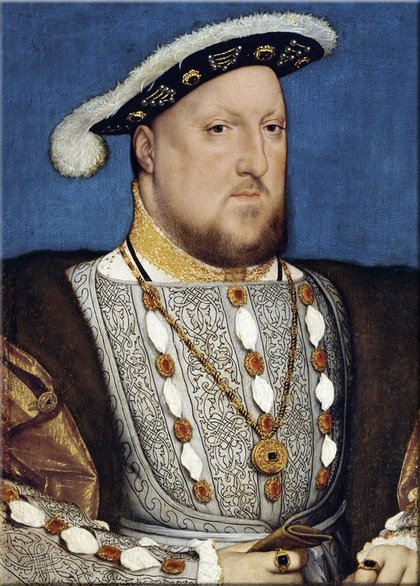The Bristorian introduces The Past Today, a unique series presenting you with the headlines of today’s past.
The series is made up of short, sharp, yet impactful 500 word pieces, designed to bring some intrigue and entertainment to your day.
The Execution of Mary Queen of Scots
On February 8, 1587, Mary, Queen of Scots, was executed under the orders of her cousin, Queen Elizabeth I of England. The execution in itself was an unusual one, but to dive into the reasons for her execution, we have to look much further back throughout Mary’s life to gain the full context for the event.
Stalingrad: The Cruel Epitome of Urban Warfare
On this day, 80 years ago, The Battle of Stalingrad ended. Arguably one of the most bloody, brutal, and harrowing battles of the Second World War. The battle also marked a significant turning point and potentially the beginning of the end of the War itself.
The Liberation of Auschwitz and its Legacy: The Failure of the Allies to Act
78 years ago today, Auschwitz, the most notorious of all of the Nazi death camps, was liberated. The symbolic nature of this moment meant that today was chosen to serve as the International Holocaust Memorial Day.
Inauguration of Indira Gandhi, 1966
On this day 57 years ago, Indira Gandhi was inaugurated as the first female Prime Minister of India. Bristorian Contributor, Milan, looks at her life and time in office.
The Coronation of Elizabeth I
With King Charles III’s coronation having been set for later this year, and interest in the phenomenon therefore likely to grow, Silva looks at the historical significance of the coronation of Elizabeth I, 464 years ago today.
The Treaty of Versailles: ‘A Carthaginian peace’?
On this day in 1920, the infamous Treaty of Versailles came into effect. After four years of brutal warfare that shaped Europe, the Treaty has had a contested historiography. Bristorian Contributor, Mish Al-Roubaie, discusses whether or not the Treaty is rightly described as ‘Carthaginian Peace.’
The Council of Trent, 1545
On this day, 477 years ago, The Council of Trent convened and would be one of the most critical events in the history of the Roman Catholic Church. Bristorian contributor, Milan, looks into the significance of the event.
The Attack on Pearl Harbor
On this day in 1941, Japanese forces attacked Pearl Harbour, a US military base in Hawaii. While it is commonly seen as a military blunder, the consequences of this attack would have significant short-term and long-term effects on Japan in the future.
Bhopal Gas Tragedy: An Industrial Catastrophe as a Result of Corporate Negligence and Governmental Apathy
The Bristorian contributor, Sayoni Ghosh, reflects on the devastating industrial disaster that happened on this day in 1984, and its effects are still with us today through chronic illnesses and contaminated land.
The Battle of Austerlitz, 1805
For ‘The Past Today’, Natty looks at Napoleon’s involvement and tactics at the 2nd of December 1805 Battle of Austerlitz - a decisive battle that displayed the emperor’s tactical aptitude and led to the effective end of the War of the Third Coalition.
The Execution of the ‘Great Pretender’ Perkin Warbeck
Perkin Warbeck may not be the first person that comes to mind when one thinks of the Tudors, but he had a significant influence upon Henry Tudor’s domestic and foreign policy, existing as a figure that deserves to be brought into a more public sphere.
The Death of Blackbeard
When you ask someone to name a pirate, Blackbeard will most likely come up. He is probably one of the most notorious and famous pirates in popular imagination. From his death on 22nd November 1718, his imagery and actions would be passed down through the decades, and has transformed the popular imagination of pirates in the present day.
The Fall of the Berlin Wall
After 33 years, AJ considers the lasting impact of the Iron Curtain, interviewing Germans, Sigrid and Arnim, who grew up before the fall.
The October Revolution
The Russian Revolution of 1917 was undoubtedly the most ground-breaking social and political experiment carried out in the 20th century. It casts long shadows, and its tremors are still felt in the current political zeitgeist whether it is the beguiling allure of socialism in Latin America and Asia or the reignited Cold War rhetoric of Russian leaders in the present day.
The Hungarian Uprising and the Soviet Invasion of Hungary
On the Past Today, The Bristorian looks at the causes and legacy of the Hungarian Uprising that took place in 1956. On this day, Soviet forces would enter Hungary from neighbouring states to quell the protests and fighting occurring in the capital. The Uprising would eventually end soon after the superior forces arrived.
The Aberfan Disaster
On this day 56 years ago the infamous British mining disaster happened at Aberfan, Wales. The resulting landslide would engulf the local primary school and parts of the village below, raising important questions regarding industry, monarchy and class in the 1960s UK. Lewis explores its legacy, and how perceptions of disaster have changed in the years following…
The End of the Chinese Long March
In 1934, the Red Army of the Communist Party of China (CPC) marched across China in retreat during what would be the end of the Chinese Civil War. On October 19th, 1935, the Red Army ended its journey and now sought to consolidate and strengthen themselves.
The Death of Karl Marx
Today, on the 139th death anniversary of Karl Marx, the Bristorian explores the impact of one of the most consequential historical figures of all time.
The Death of Henry VIII
Henry VIII, the six-wives wonder may be six feet under, but he’s certainly not been forgotten. The Bristorian reflects on the life of one of the most famous monarchs in history.




















